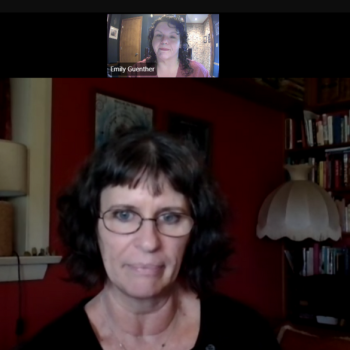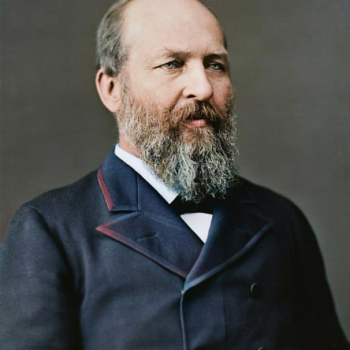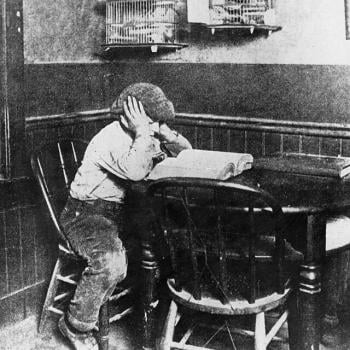In 1967, I returned to Europe as a graduate student in the university town of Göttingen. It was a turbulent time, and America's civil rights turmoil together with the U.S. war in Vietnam were on every television and every mind. I found myself continually on the defense, rallying to causes and practices and political polices in which I did not myself believe, trying at minimum to maintain that the path to any trouble can be paved with reasonable, even honorable intentions. Meanwhile, students in Germany were staging an upheaval of their own, attempting to overturn the deeply conservative structure of the university and its oligarchical professorate. They disrupted lectures and took over seminars, demanding attention, demanding discussion, demanding revolutionary change. There were marches and riots, and even in the theological seminaries there was insurrection in the air.
One movement that held my attention called itself Christian Atheism. Its proponents were theology students openly committed to the institution of the church, the social mission of the gospel, and the notion of religious community, but nonetheless also resigned to the predominating belief that God was unlikely to exist or, at best, having turned up absent from lived history, was indifferent to human enterprise. I spent some bemused time in discussion with these students, trying to make sense of their enthusiasm for "faith" without belief. I joked about this later with friends both religious and not. Meanwhile, as far as I could tell, the predominating, affirmative religion at the university was Marxism/Maoism. Chairman Mao's little red book Worte des Vorsitzenden Mao Tse-Tung was as ubiquitous at rallies, demonstrations, and even seminars as triple-combinations at a missionary conference. Everyone had been studying. Everyone bore testimony. Everyone could quote chapter and verse. I was in a culture professing religion without God and propagating atheist philosophy in the manner in which my own people proclaimed religion. There seemed to me then a root silliness in all this irony. Now, almost four decades later, I'm not so sure.
Christian Atheism was perhaps neither so remarkable nor, for that matter, nonsensical as I supposed. In a violently fractured culture, haunted by calamity, in which the absence of a loving creator seemed so fully evident to so very many, how was one to respond to religious yearning, a root human hunger common in some degree to every culture, even resistant ones. Was it so surprising or even unwelcome to find nascent believers making up surrogate religion or making secular attempts at the sacred?
Meanwhile, neither the American war in Vietnam nor the state of U.S. race relations did much to persuade my discussion partners that an American religion might offer a more promising route to salvation. German students, in fact Germans generally, were appalled by both U.S. militarism and racism. I did not share with them the wisdom then common among Mormons that God had, unequivocally, taken the American side in the Vietnamese conflict or that, as a matter of priesthood, he had also long since come out four-square against racial equality. I kept this information to myself. Some explanations seemed more trouble than they were worth, more fuel on the fire, more motivation, finally, for religious atheism and a Godless church.
The LDS branch in Göttingen was small, still made up mostly of those old ladies who "run" to their meetings. But with some young people as well and a few priesthood holders, we formed a tight countercultural village in this university city. And we took good care of our missionaries who, because their successes were few and fragile, needed reassurance. Not much had changed since my own mission. Baptisms were rare. People, the missionaries explained, did not get very exercised over which church was true when they didn't believe in God. I nodded. I knew what they meant. The Word of Wisdom, tithing, premarital chastity were hard to market in the land of Martin Luther and Johann Sebastian Bach, but the really tough sell was religion.
It would be twenty years before I returned again to Germany, this time on a research grant and with other, more secular, things on my mind. In the West German Parliament in 1986 there was a lot of political talk about German reunification. But it was all political, and it was all talk. Nobody believed it. Returning to the U.S., I assured my students we would not see Germany reunited, not in my lifetime, anyway, and probably not in theirs. Just three years later, my wife and I sat up late in bed, watching the Berlin Wall come down in chunks while East Germans streamed past the Brandenburg Gate into West Berlin. It was past midnight, but we made the children get up and come join us in front of the television. We were both in tears, and they asked if we were all right. They also wanted to know if there were any brownies left and could they go back to bed. We let them eat, but made them stay up and watch.




